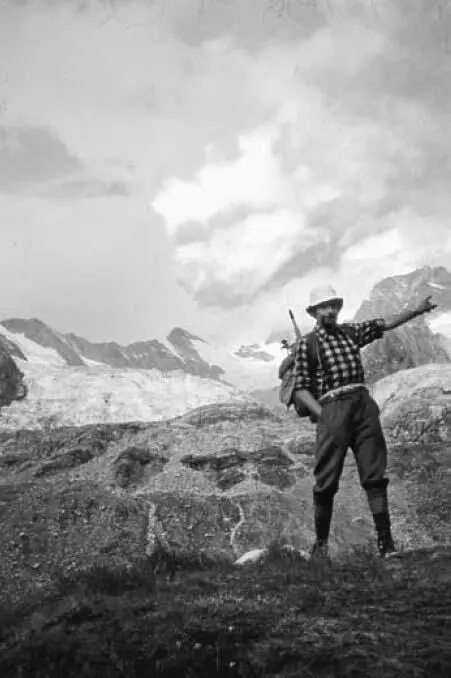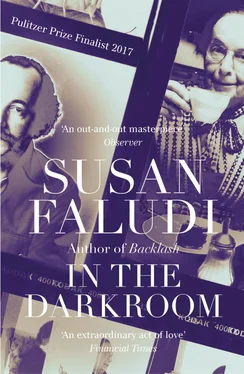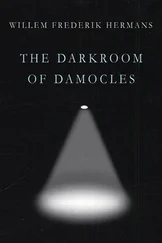
When I was fourteen, two years before my parents’ separation, I joined the junior varsity track team. Girls’ sports in 1973 was a faintly ridiculous notion, and the high school track coach, who was first and foremost the coach of the boys’ team, mostly ignored his distaff charges. I designed my own training regimen, leaving the house before dawn and loping the side streets to Mohansic State Park, a manicured recreation area that used to be the grounds for a state insane asylum, where I ran a long circuit around the landscaped terrain, alone. By then, I had developed a preference for solo sports.
Early one August morning I was lacing my sneakers in the front hall when I sensed a subtle atmospheric change, like the drop in barometric pressure as a cold front approaches or the prodromal thrumming before a migraine, which signaled to my aggrieved adolescent mind the arrival of my father. I reluctantly turned and made out his pale, thin frame emerging from the gloom at the bend of the stairs. He was wearing jogging shorts and tennis sneakers.
He paused on the last step and inspected the situation with his peculiar remove, as if peering through a keyhole. After a while, he said, “I am running also,” his thick Hungarian accent stretching out the first syllable, “aaaalso.” It was an insistence, not an offer. I didn’t want company. A bit of doggerel, picked up who knows where, spooled in my head.
Yesterday, upon the stair,
I met a man who wasn’t there
He wasn’t there again today
I wish, I wish he’d go away …
I pushed through the screen door, my father shadowing my heels. The air was fat with humidity. Tar bubbles blistered the blacktop. I poked them with the toe of one sneaker while my father deliberated, turning first to his old VW camper, then to the lime-green Fiat convertible he had recently purchased, used, “for your mother.” My mother didn’t drive. “Waaall,” he said after a while. “We’ll take the Fiat.”
We drove the five-minute route in silence. He wheeled into the lot of the IBM Research Center, a block from our destination. Prominent signs made clear that parking was for employees only. My father paid them no mind. He took a certain pride in pulling off small scams, which he called “getting awaaay with things,” a predilection that led him to swap price tags on items at the local shopping center. He acquired a camping cooker in this manner, at a savings of $25.
“Did you lock your door?” my father asked as we headed across the lot, and, when I said I had, he looked at me doubtfully, then turned and went back to check. The flip side of my father’s petty transgressions was an obsession with security.
We hoofed it down the treeless corporate drive to Route 202, the thoroughfare that runs along the north edge of the park. We dodged between speeding cars to the far side, and climbed over the metal divider, jumping down into the depression beyond it. My father paused. “It happened there,” he said. He often talked this way, without antecedents, as if mid-conversation, a conversation with himself. I understood what “it” was: some months earlier, after midnight, teenagers returning from a party had run the stop sign on Strang Boulevard and collided with another car. Both vehicles had hurtled over the divider and landed on their roofs. No one survived. A passenger was decapitated. My father had been witness not to the accident itself but to its immediate aftermath. He was on call that night with the Yorktown Heights Ambulance Corps.
My father’s eagerness to volunteer for the local emergency medical service had seemed out of character, at least the character I thought I knew. He shrank from community affairs, from social encounters in general. On the occasions when my parents had guests, my father would either sit mum in his armchair or take cover behind his slide projector, working his way through tray after tray of Kodachrome transparencies of our hiking expeditions, naming each and every mountain peak in each and every frame, recounting every twist and turn in the trail, until our visitors, wild with boredom, fled into the night.
He referred to his service with the ambulance corps as “my job saaaaving people.” Which I also didn’t understand. Our town was a place of non-events, the 911 summons a suburban emergency: a treed cat, a housewife having an anxiety attack, an occasional kitchen-stove fire. The crash in Mohansic State Park was an exception, although again there was no one to save. When my father arrived, the police were covering the bodies. The ambulance driver grabbed his arm. “Steve, don’t look,” my father recalled him saying. “You don’t want that in your memory.” The driver had no way of knowing the wreckage already lodged in my father’s memory, and of how hard he had worked to erase it.
Leaving the old accident site behind, the two of us took off running along the paved road and into the picnic area, past rows of empty parking lots. The route began on a dull flat stretch of baseball diamonds and basketball courts, then looped around the giant public pool (where I worked summers at the snack stand) and along Mohansic Lake, finishing up a long hill. By the lake, we picked up a narrow footpath. We ran without speaking, single file.
At the final climb, the path gave way to wider pavement, and we began jogging side by side. Minutes into the ascent, he picked up his pace. I sped up. He ran faster. So did I. He pulled ahead again, then I did. We both gasped for breath. I looked over at him, but he didn’t return my gaze. His skin was scarlet, shiny with sweat. He stared straight ahead, intent on an invisible finish line. All the way up the hill, the fierce mute maneuvering maintained. When the pavement flattened, I ached to ease the pace. My stomach was heaving and my vision had blurred. My father broke into a furious stride. I tried to match it. It was, after all, the early ’70s; “I Am Woman (Hear Me Roar)” played on the mental sound track of my morning jogs. But neither my ardor for women’s lib nor my youth nor all my training could compete with his determination.
Something about my father became palpable in that moment, but what? Was I witnessing raw aggression or a performance of it? Was he competing with his daughter or outracing someone, or something, else? These weren’t questions I’d have formulated that morning. At the time, I was trying not to retch. But I remember the thought, troubling to my budding feminism, that flickered through my mind in the final minutes of the run: It’s easier to be a woman. And with it, I let my legs slow. My father’s back receded down the road.
At home in those years, my father was a paragon of the Popular Mechanics weekend man, always laboring on his latest home craft project: a stereo and entertainment cabinet, a floor-to-ceiling shelving system, a dog house and pen (for Jání, our Hungarian vizsla), a shortwave radio, a jungle gym, a “Japanese” goldfish pond with recycling fountain. After dinner he would absent himself from our living quarters—our suburban tract home had one of those living-dining open-floor plans, designed for minimal privacy—and descend the steps to his Black & Decker workshop in the basement. I did my homework in the room directly above, feeling through the floorboards the vibration of his DeWalt radial arm saw slicing through lumber. On occasion, he’d invite me to assist in his efforts. Together we assembled an educational anatomy model that was popular at the time: “The Visible Woman.” Her clear plastic body came with removable parts, a complete skeleton, “all vital organs,” and a plastic display stand. For much of my childhood she stood in my bedroom—on the vanity dresser that my father also built, a metal base with a wood-planked top, over which he’d staple-gunned a frilled fabric with a rosebud pattern.
Читать дальше













